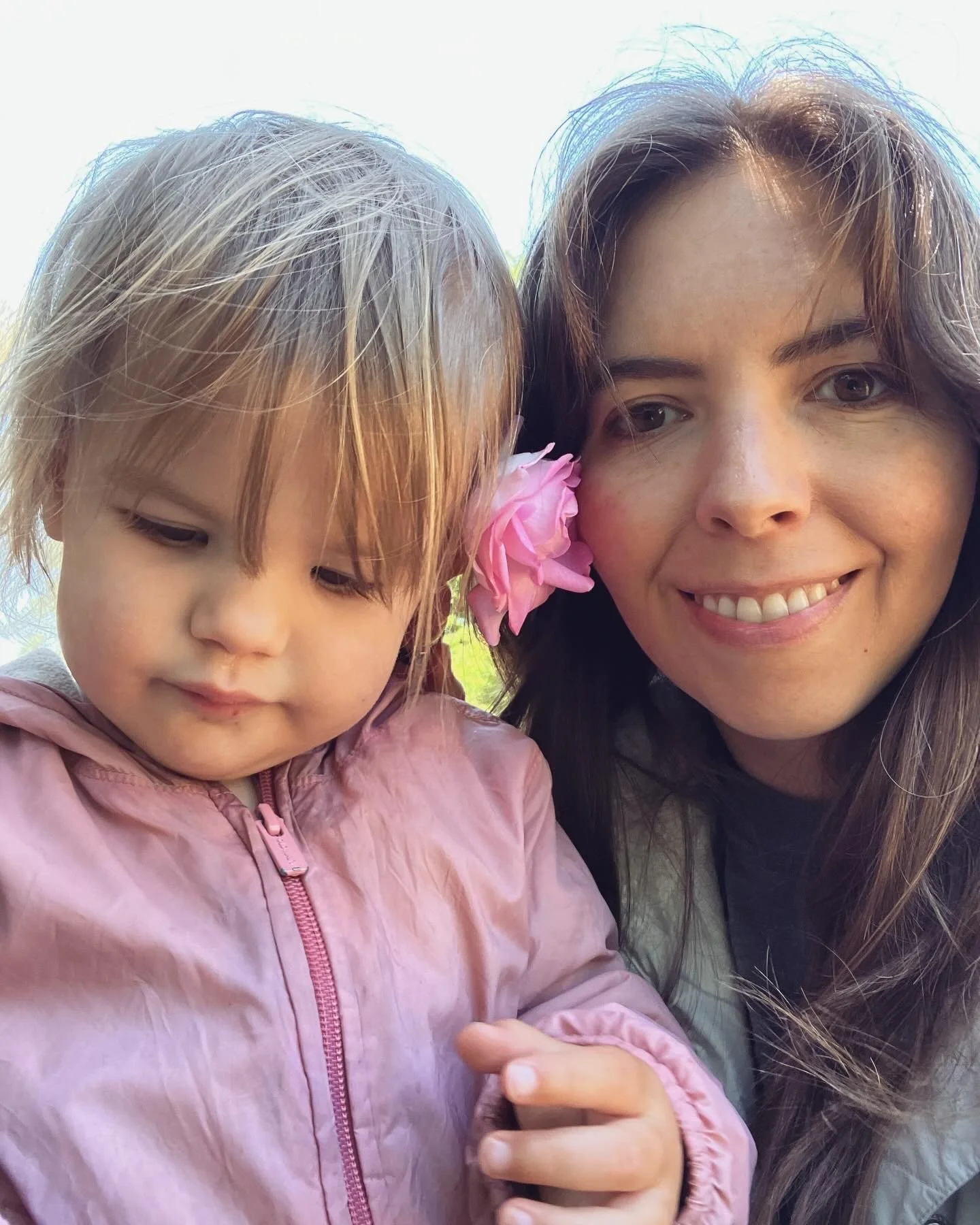A Lesson in Willpower from Mothering a Three Year Old
Last month at age 3.5 my daughter stopped sucking her fingers. It was a complete miracle, a divine intervention of some kind that I could not have planned myself.
She had been doing it since she was about 4 or 5 months old.
As a baby, it was celebrated. “Self-soothing” meant she could begin to fall back to sleep on her own.
But once she turned 1, then 2, I started to feel this mounting pressure—like it was now my job to get her to stop.
I worried about her palate, her teeth, and the long-term effects. I didn’t want to go down the orthodontic road if we didn’t have to.
So we tried everything—reading her books about finger sucking, gentle reminders, explanations, even a little velcro arm band that stopped her from bending her elbow.
Nothing worked.
So we decided to wait until she was 3. We told her, “When you turn 3, you’ll be a big girl and you can stop sucking your fingers.”
But 3 came and went, and nothing made a difference.
We meditated on it. We said a prayer for higher guidance. We handed it over to the divine. And because we didn’t know what else to do, we decided to completely let it go.
A few days before she turned 3.5, she was standing on her little balance bike and suddenly fell—hard. It didn’t even make sense. She wasn’t riding it, just standing there, and somehow lost her balance.
I ran to her and scooped her up. She was crying from the pain, and I felt that familiar, helpless ache mothers feel when there’s nothing we can do to take it away.
Then I noticed: she had landed on the two fingers she always sucked—her index and middle finger.
It took her awhile to calm down from the pain, and there was a cut. We soothed her and comforted her and gave her ice.
As it was all happening, I was there with complete love and support, but I also knew this was somehow being guided.
Earlier that day, I’d been listening to a podcast based on the teachings of Yogananda. He talked about bad habits as grooves in the mind. The mind is very used to following those patterns. They are set up and then strengthened with repetition. And we begin to crave them.
But he also reminded us that we can break habits (as well as negative thought patterns) through awareness and willpower.
He shared a story of how, when he first came to the U.S., he had never tasted coffee. But people kept inviting him to sit and chat over coffee, and eventually, he started to crave it. As soon as he noticed that craving, he stopped—just like that.
That same week, Ella and I had been reading Frog and Toad before bed. The story was about cookies, and how Frog and Toad struggled not to eat them. They tried putting the cookies in a box, then tying the box with a string, and then putting the box high up on a shelf—but nothing worked and they couldn’t stop.
Finally, they gave the cookies to the birds.
“Toad,” said Frog, “We may not have cookies, but we have lots and lots of willpower.”
That line always makes me smile—because the truth is, they had no willpower. They just removed the temptation.
But still, every night that week, Ella and I were talking about willpower—what it was and why it mattered.
We all have bad habits. They’re hard to break. Often, we need to hit some kind of rock bottom before we’re ready to make a change.
But Yogananda’s words reminded me: we can change. Through awareness, willpower, and choice.
That night, after the fall, her fingers hurt too much to suck. But that also meant—for the first time since she was a baby—she had to fall asleep without them.
I lay next to her, holding her through her tears.
She kept bringing her fingers to her mouth, pausing, with a desire to suck them so badly and then cried because they hurt too much to suck. Over and over again. That mental groove was still there, and it was so hard not to follow it.
I whispered, “You can do this, Ella. You have willpower.”
I told her how brave she was, how much I loved her, and that I believed in her.
We tried breathing exercises, meditations. Eventually, she fell asleep.
It was probably the hardest thing she’d ever done up to that point—sitting with the discomfort of not doing what she desperately wanted to do.
I remembered in Yogananda’s lecture he had said the first few times are the hardest, and then it gets easier.
That night, I could feel her guides with us, holding space, cheering her on.
She woke up a few times, still unable to soothe herself the usual way, and each time she cried. I just held her and sent her love.
But she made it through.
Then she made it through the next night.
And the one after that.
By the end of the weekend, she came to me glowing:
“Mommy, I don’t need to suck my fingers anymore!”
I was so proud. She did it. The thing I had no idea how she would ever overcome—she did it, in her own time, in her own way.
In the end, we didn’t need to force it. We just had to trust. Faith, patience, and a little divine intervention did the rest.
What’s your relationship to bad habits, mental habits and willpower?
What about prayer and letting go?
Are there any bad habits (or ways of thinking) you’re ready to release?
Sending this as a little reminder of the willpower we can cultivate when we put our mind to it.
xoxo
Meredith
Note: This post is part of my Spiritual Motherhood section on Substack. Follow along

